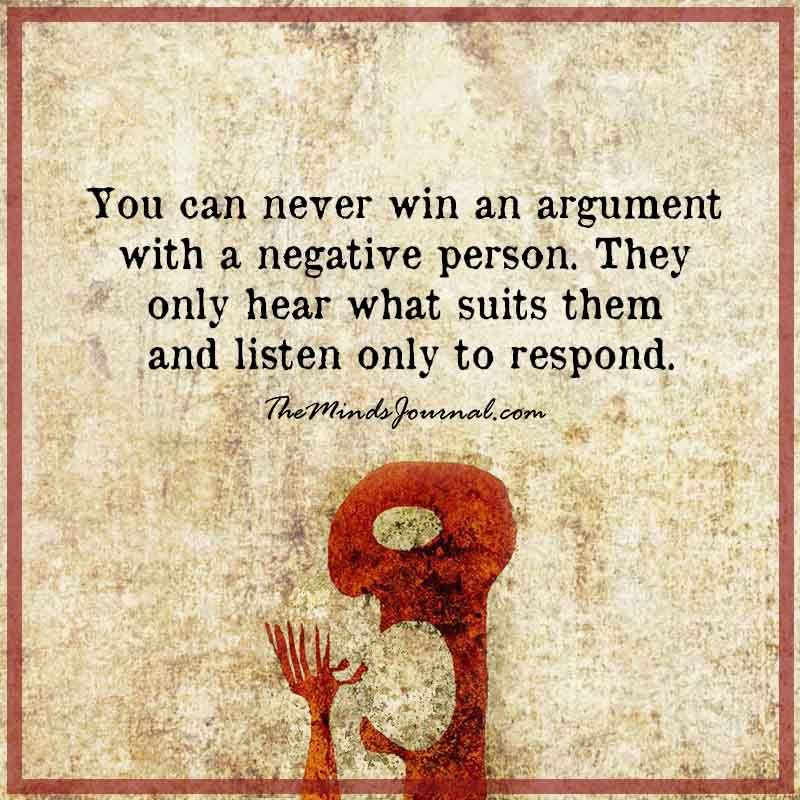Understanding the mind of a narcissist is tough as their whole persona is a lie. Narcissistic people tend to participate in discussion in an unhealthy, argumentative manner and it gets really challenging to find out the real motive of their arguments. Learn from a narcissist about what really goes on the mind of a narcissist when you argue with narcissists.
What Is It Like To Argue With Narcissists?
Would you like to know what is going through my mind when we argue? Thought you would. I do enjoy an argument. I love to start a squabble, a contretemps, and escalate it to a quarrel through to an altercation, a fight! By now I am sure you have realized that the reason I argue is twofold.
Why Narcissists Argue?
First, I am provoking an emotional reaction from you which gives me fuel.
Secondly, argument enables me to put you in your place and control you by being abusive towards you. I keep it within the realms of stinging and barbed verbal abuse but there are those of my brethren who do like to let their fists do the talking. That is not my style but we cannot shy away from the truth of what is being done in the name of “a discussion”.

I know from experience and also from reading numerous comments and observations that you regard arguing with me akin to banging your head against a brick wall. You cannot understand the stance we adopt in an argument.
Surely we must recognize that what we are saying makes no sense? Do we not realize that our position lacks logic? I will endeavor to enlighten you.
Related: 8 Signs You Are Dealing With A Vulnerable Narcissist
I Recognize Two Types Of Argument.
1. The first is created by me.
2. The second is created by you. What they both have in common is you are at fault.
1. In the first type, I generate an argument out of nothing.
I argue for nothing. You find this disorienting and confusing. In fact, I will often do this after we have just done something delightful together (throwing you from a height is all the more delicious – see Get Ready To Drop).
I will invent some offense (why did you just look at that man across from us, when you did not) or I will seize on something utterly trivial (thanks for taking that last drop (and it was a drop) of the sauvignon blanc). I will level the accusation at you.

You will at first be stunned because everything was going swimmingly. You will then be perplexed as my accusation is either untrue or so minor to be negligible. Why is he getting so het up over nothing? Indignance will then rise inside you as your inner self questions whether you are just going to sit and take this unjust accusation. I am shouting at you now and you either run away or fight back. It might go something like this.
Related: 9 Clever Mind Games Narcissists Play In Relationships
“Oh thanks for taking the last of the wine, I wanted that. I have hardly had any.”
“Sorry? There was only a drop left.”
“But you didn’t ask me if I wanted it did you?”
“I didn’t think to, there was just a dribble.”
“You didn’t think? That’s the trouble with you. You never think.”
“Oh come on, besides you’ve had plenty of wine anyway.”
“Are you saying I have a drinking problem?”
“Woah, where did that come from?”
“You. You are always doing this. You do something selfish and then turn it into an attack about me. Just because you cannot stand for someone to point out when you have done something wrong.”
“Good God, what are you talking about?”
“That’s it, try to dismiss me when I am making a valid point.”
“I only poured a drop of wine into my glass. It is no big deal. Here, if it troubles you so much, have what is left in my glass.”
“No, it’s too late. The damage is done. You are trying to make light of when I am pointing something out to you.”
“This is ridiculous.”
“Oh I am ridiculous am I, well that’s rich coming from someone who drinks a bottle, at least once, a day.”
“Where do you get that from? No, I don’t.”
“Yes, you do. I am concerned about your drinking, have you ever considered getting some help?”
And on it goes.
When I argue like this I am not interested in proving what I am saying is correct. I am already right in my mind. You should note that ‘right’ and ‘correct’ are not necessarily the same thing. The whole purpose of this type of argument is for me to upset you and turn an otherwise pleasant experience into a horrible one.
This argument is about exerting control so that you become wary about upsetting me. Next time you will always ensure you offer to pour me a glass of wine before tending to yourself for fear of causing an argument. Of course,, the next time I will be arguing about how you took the last profiterole instead even though I had eaten five more than you already.
Related: 7 Typical Text Messages From A Narcissist
2. The second type of argument is where you level a complaint or accusation at me.
Invariably what you say is correct and you have valid grounds for raising it. You will also do so in a calm and level-headed fashion because that is your style. When you do this I do not hear what you are actually saying to me. The validity of your argument is meaningless to me.
The piece of paper that documents your point may as well be written in Sanskrit for all the notice I will take of it. All I hear is you criticizing me and I hate that. I absolutely hate it.
How dare someone like you, who is inferior to someone like me, have the audacity to suggest I have done something wrong. I do not hear your words, I do not see the video recording you are playing back, all I hear is an unjust and scathing attack on me. Your words are drowned out by the raging fire that surges through me.
The noise of the flames renders me deaf to your cool logic. I will deflect, deny and launch my own attacks (usually predicated on inventions) in order to beat you back. I am not interested in the correctness of what is being argued about.
I am only interested in stopping the burning sensation I feel from your criticism and to do that I have to extinguish you. This is when I lose control and lash out. I will hurl savage insults at you and I will smash items of property (in my mind I am smashing you, just another object in front of me when I do this) and some of my kind will engage in physical violence.
Related: 5 Signs Someone Is A Conversational Narcissist
You will try to make me see that I am wrong (any healthy person would do this) and you are utterly flabbergasted as to why I cannot see what you are saying to me. Now you know. I cannot see because of the fiery rage that has erupted.

How do you deal with me in these two types of argument? Well, I am saving that information for another time. In the meanwhile, see if you can piece together that ornament I have just hurled against the wall.
Hope you liked reading about why narcissists argue from the perspective of a narcissist himself. Please share this article with anyone who you may think will find it valuable and helpful
Written By: HG Tudor Originally Appeared On: Narcsite.com Republished With Permission.












Leave a Reply